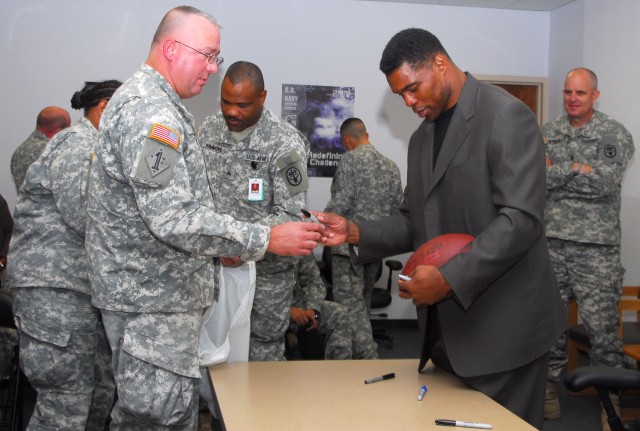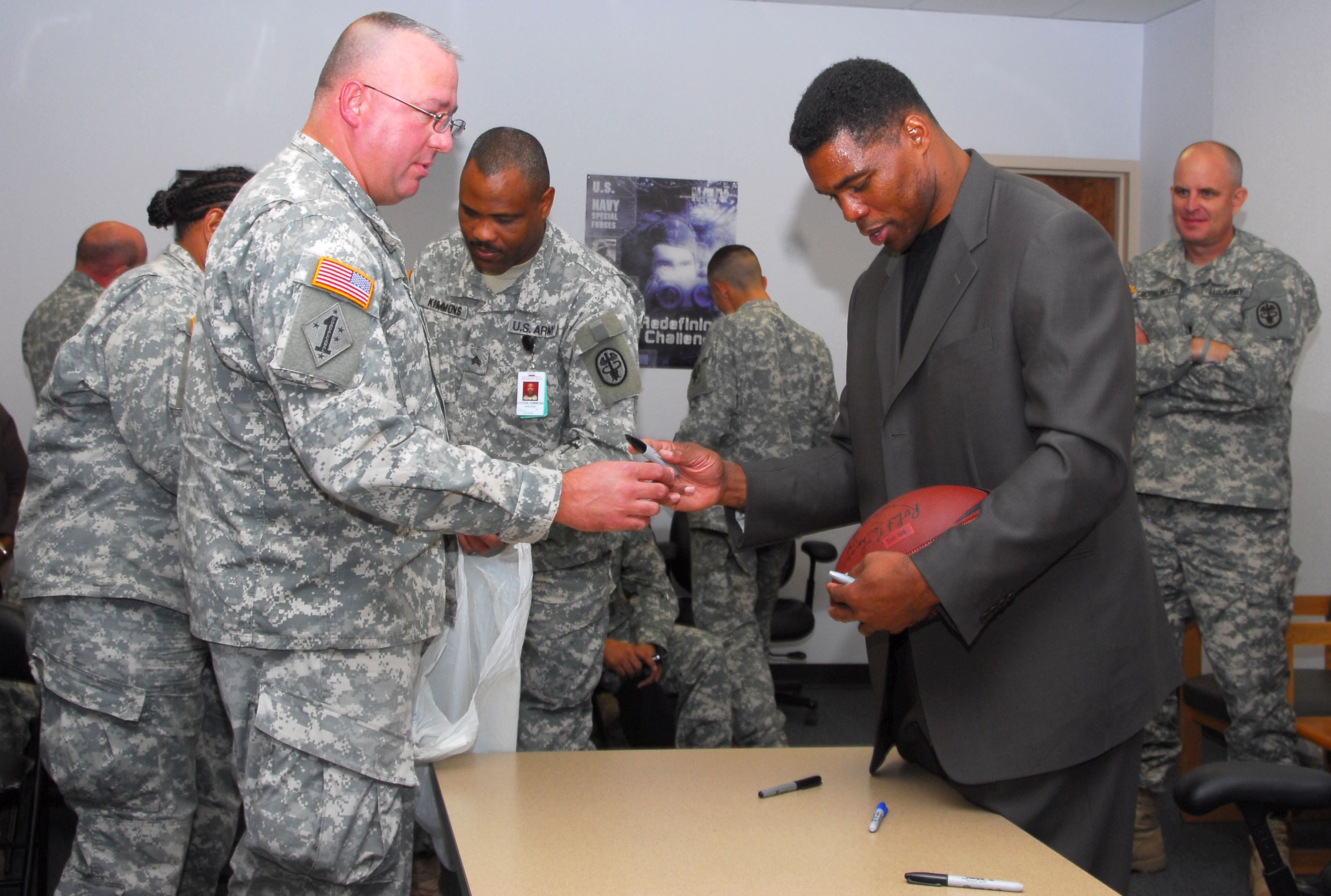"I wanted help and I wanted to understand. There's no shame in admitting you have a problem - I did!"
With those words, Hershel Walker, the legendary 1982 Heisman Trophy winner, pro football star and Olympian, revealed he had suffered from a form of mental illness called dissociative identify disorder - DID. He shared his personal experiences during presentations Thursday at William Beaumont Army Medical Center and the Warrior Transition Battalion.
Before Walker began his presentation at the first session held in the center's clinical assembly room, Col. Ney M. Gore, deputy commander for clinical services, presented Walker with the commander's coin. He thanked him for "taking time to help Soldiers, family members and assigned staff to recognize that it's OK to seek help when there are mental health challenges in your life."
"Here at WBAMC, we are committed to providing innovative care from the battlefield to the home front," said Gore.
As a child growing up in Wrightsville, Ga., Walker suffered from a speech impediment and was overweight. Other children bullied him. To cope, he used an alternate personality to deal with the hurt and embarrassment. Finally, he had enough. He started doing push-ups and sit-ups and running five to 10 miles a day. He read books and improved in his schoolwork.
His parents didn't allow him to make excuses. His competitive spirit drove him to succeed in scholastics and athletics. Walker graduated valedictorian from his high school class and played football for the University of Georgia. He went on to further successes in pro football and Olympic fame.
Ten years ago, Walker learned he suffered from DID, formerly known as multiple personality disorder. "All I knew about multiple personalities was from the movie Sybill - and she seemed crazy to me," said Walker. "I had to come to terms with my diagnosis. I knew I wasn't happy; I was sad, I was angry, and my life was out of control."
Walker, a tough guy with impressive accomplishments as a football player, an Olympian, a father and a businessman, needed help. After getting treatment for his diagnosis, Walker said he feels stronger than ever.
"We are all hurting in some way. Coping mechanisms are developed from childhood. Some people use alcohol or drugs to cope," said Walker. "People need to admit they have a problem in order to stop suffering needlessly."
Walker has traveled to Iraq on several occasions and said visiting the Soldiers there was a very special privilege for him.
"As a child I always wanted to join the military," said Walker. "It was impressive to see our Soldiers in action in the combat zone. Supporting our military and what they do to ensure our freedom is important to me. "
Speaking to Soldiers, Walker said, "If you think you might be suffering from some type of mental health issue, including post-traumatic stress disorder, get treatment. Doing so does not make you a weak person. Look at me: I am better and stronger. Some people won't understand. As a whole, we are not educated about mental illness."
"You are not crazy - you have suffered trauma," added Walker. "As a Soldier, you have gone through much more than the average person experiences. You need to get the right kind of help. If you get treatment, you can become a better citizen, a better family man and a stronger person."
Walker said he is passionate about educating the public and breaking down stereotypes about mental health issues.
"Everything in your life is not always going to go right or be right," he said. "If you don't get to the root of the problem, the tree will never blossom. Love yourself; you are special. Allow yourself to blossom."
"For all of his accomplishments on the football field and athletic prowess, perhaps Hershel's greatest accomplishment has been to help reduce the stigma associated with recognizing and getting help for mental health issues," said Col. Benjamin Page, chief of the WBAMC Department of Mental Health.


Social Sharing